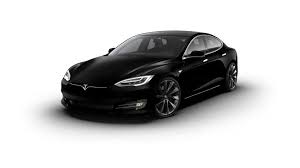So we have recently bought an electric car!

For any regular readers, you would have seen my article from a few days ago. When people are writing articles comparing the emissions from generating electricity to the tailpipe emissions of the combustion engine – any one with a brain is asking why? Given you are not comparing like for like. We estimate that our carbon emissions reductions from replacing our car may reach 10 tonnes a year. Each fill up of our petrol car meant about 40kg of petrol, which took 110kg of emissions to dig it out of the ground and transport it (often around the world).
So from an environmental position, yes it certainly makes sense.
But what about from a financial position?
If buying a new car, the cheapest electric car can be had for around £16,000. It is called a smart eq fortwo, and as the name suggests, it can take two people. the Fiat 500e takes 4 and can drive 118 miles – enough for city driving but not much more. These however are generally small commuter cars. A family car needs more space, and if your family tends to go on long journeys it generally needs more range.
We bought a used Tesla model S. Now you might ask why we did not buy a tesla model 3? That is simple – despite them being a smaller, less luxurious car they are also far newer. As a result, the cheapest model 3 on Autotrader is £35000 and even on ebay it is £30000.
We paid £25000.
Now, this is a large amount of money however we calculated that over the year we fill up our car about 2 -3 times a month in ordinary times, plus as much as 10-20 for holidays and road trips. At the moment, that means we are paying around £3500 pounds a year on petrol. Now while this may fall, this works out at £28,000 over 8 years.
Of course we need to fuel the electric car, but a standard charge at home is going to work out at about £5. If we use the same maths, all normal fill ups can be done from home – say 40 in the year (£200) as, being able to charge at home any road trip will always start with a full battery. Charges on the road work out at £20-25 (in the UK) so this gives a total of about £450 on recharging. We can take away a significant amount of this as there are increasing numbers of places that you can charge for free.
In any case, if we are generous we may spend £500 on recharging a year. This means over 8 years the savings are £28,000 minus £4000 for recharging, giving you a savings of roughly the cost of the car (this does of course not take into account the cost of borrowing the money).
This does not take account of the fact that we now have a far nicer car than the one we were driving before. What is the point I am trying to make? While it requires some money up front either from savings or a loan, getting your family into an electric car.
These are often safer and are generally expected to last far longer than their gas equivalents. Indeed, a tesla motor is expected to last 1 million miles. The battery (the part that people worry about the most) is expected to last 200,000 to 400,000 miles. Given the average UK family drives around 7000 miles a year, this limit suggests that a tesla should be able to go for 29-58 years before needing its battery replaced. The former owners have driven somewhat more than average, and as this car is there to allow us to reach wilderness more often we are likely to be above average as well.
Now, it is true that we also have a small car for my wife to commute to work in, and at the moment this kind of car is not easy to replace. All the cheapest small cars are generally Nissan leafs, which are known to have many problems. Never-the-less, I want to encourage as many of you to go electric as possible. If all readers went electric, then over the next decade we could collectively save several megatons of emissions, which is quite a significant reduction.
So what plans are there for trips in this car? I am hoping in a month or two to drive to northern Spain in the hope of seeing bears and wolves in the wild.
